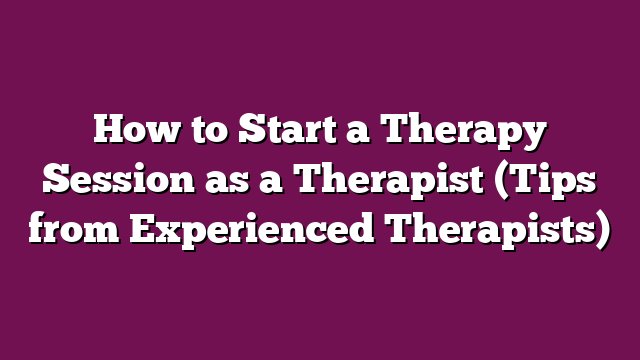Have your progress notes written for you automatically
For therapists seeking to increase their knowledge and improve their practice, selecting the right literature can be life changing. Good books not only offer insights into complex psychological theories and therapeutic techniques but also provide real-life examples that can be used in daily sessions with clients. These books often cover a broad range of topics, from understanding mental health conditions and their treatments to exploring developmental psychology and the impact of trauma etc. Whether you are a new psychologist, a seasoned counselor, or somewhere in between, there are lots of written resources designed to promote growth, empathy, and effectiveness in therapeutic settings. This list of books recommended by experienced therapists at Mentalyc aims to help you understand human emotions and behavior better, so you can support and guide your clients toward improved mental health.
The 8 best books for therapists are as follows:
The Primal Scream. Primal Therapy: The Cure for Neurosis
Book by Arthur Janov.
Arthur Janov’s “The Primal Scream has been a notable and controversial work in the field of psychology since its publication in 1970. This book outlines Janov’s primal therapy, positing that neurosis is caused by repressed pain from childhood traumas and can be healed by re-experiencing these traumas and expressing the resulting pain. The approach diverges from traditional therapies by emphasizing deep emotional release rather than cognitive processing.
Janov’s method gained lot’s of public and celebrity attention, notably influencing John Lennon, whose experiences with primal therapy shaped his music during that era. Despite its popularity and Janov’s assertion of profound therapeutic effectiveness, primal therapy has been met with significant skepticism from the mainstream psychological community due to a lack of rigorous scientific validation and the perceived extremeness of its practices. Critics have pointed out the therapy’s foundation on unverifiable claims and the absence of controlled studies confirming its effectiveness.
For therapists, “The Primal Scream” offers very valuable insights into an alternative therapeutic approach and a historical understanding of psychotherapy’s evolution. It’s a reflection of the 1970s era’s exploration into new and radical forms of psychological treatment, capturing a cultural moment where there was a wide quest for personal transformation and healing.
Making of a Therapist: A Practical Guide for the Inner Journey
Book by Louis Cozolino
Making of a Therapist is a great book for counseling students and new therapists. This book provides a close look into the personal and professional growth that is important for therapists. Cozolino shares insights and practical advice, focusing on the inner journey of becoming a therapist rather than just the theoretical aspects.
The book begins by guiding readers through their initial sessions, emphasizing the importance of acknowledging and embracing their uncertainties and fears. This approach is meant to help therapists accept their imperfections and learn from their experiences, particularly from mistakes, which are viewed as opportunities for growth rather than failures.
Cozolino also discusses the important phase of getting to know clients, introducing techniques like ‘shuttling’ to help therapists navigate the complex dynamics of client interactions. This includes managing practical aspects such as cancellations and fees, and emotional challenges like dealing with resistance and countertransference.
The final sections of the book encourages therapists to engage in self-reflection and self-care, advocating for a balanced life that supports personal well-being, which is important for maintaining empathy and effectiveness in therapy sessions.
The book serves as a reassuring guide for new therapists, blending clinical wisdom with genuine empathy and encouragement, making it an indispensable tool for those starting out in the field of psychotherapy.
The Body Keeps the Score
Book by Bessel van der Kolk
Body Keeps the Score is a seminal work by psychiatrist Bessel van der Kolk, first published in 2014. Drawing from decades of research and clinical practice, van der Kolk explores how trauma reshapes both body and brain, compromising sufferers’ capacities for pleasure, engagement, self-control, and trust.
The book explores the complex ways that trauma can affect individuals and provides innovative solutions for recovery. Van der Kolk emphasizes the necessity for personalized trauma treatment, highlighting therapies that incorporate physical movement, including yoga, EMDR, and theater, and stresses that trauma has become a serious public health issue in the United States.
Since its publication, this book has been translated into 36 languages and, as of July 2021, had spent more than 141 weeks on the New York Times Bestseller List for nonfiction, with 27 of those weeks in the No. 1 position. The book’s enduring popularity underscores its profound impact on both the scientific community and the general public’s understanding of trauma and healing.
Self-Compassion: The Proven Power of Being Kind to Yourself
Book by Kristin Neff
Kristin Neff’s book Self-Compassion is about the nurturing quality of self-compassion, offering an amazing approach to treating oneself with kindness, understanding, and respect. The book encourages readers to break free from the destructive cycles of self-criticism and to embrace a more forgiving and caring attitude towards themselves. Dr. Neff’s work is built on extensive research and her expertise in psychology, providing a solid scientific foundation for the concepts she promotes.
Neff introduces practical strategies to cultivate self-compassion, including mindfulness exercises, self-compassion meditations, journaling, and body-based practices. These tools aim to develop a compassionate mindset that can significantly improve emotional resilience, motivation, and personal relationships. Real-life examples throughout the book illustrate how these practices can be applied in various aspects of life, from parenting and work to personal growth and interpersonal relationships, demonstrating the wide-reaching benefits of self-compassion.
This book is not just theoretical; it is highly practical. Neff provides a wealth of actionable advice that readers can incorporate into their daily lives to enhance their mental and physical well-being. The focus on everyday habits and the importance of setting boundaries underline the actionable nature of her teachings. “Self-Compassion” is celebrated for its approachable content, blending empirical evidence with accessible exercises that empower readers to change their lives through the power of self-kindness.
The Gift of Therapy: An Open Letter to a New Generation of Therapists and Their Patients
Book by Irvin D. Yalom
The Gift of Therapy written by Irvin D. Yalom is a valuable resource for new therapists aiming to deepen their understanding and effectiveness in their practice. This book encapsulates over three decades of Yalom’s insights and experiences, distilled into a guide that not only highlights the therapeutic relationship but also personalizes it, treating each interaction as unique. Through a series of 85 insightful tips, Yalom offers both practical advice and philosophical guidance, helping therapists to navigate their professional journeys with empathy, honesty, and a deep respect for their clients’ individual experiences.
The essence of Yalom’s teaching revolves around the profound impact of genuine human connection in therapy. He advocates for therapists to allow themselves to be emotionally available and transparent with clients, suggesting that therapists let their clients matter to them and acknowledging their own errors as part of the therapeutic process. Such openness is proposed not just as a method, but as a experience that benefits both the therapist and the patient. His approach is not about rigid methodologies but about being adaptable, creating a new therapy for each patient that honors their specific needs and life stories. The Gift of Therapy is both a reflection on personal growth and a compelling call to action for therapists to continually evolve and adapt their practices to serve their patients better.”
For those interested in exploring more about the book and its teachings, you can find further details and purchase information through Yalom’s website and on various book retailers like Bookshop.org.
On Becoming a Person: A Therapist’s View of Psychotherapy
Book by Carl Rogers
On Becoming a Personby Carl Rogers is a visionary book in the field of psychology that provides deep insights into the humanistic approach to therapy. Carl Rogers, a pioneer of client-centered therapy, articulates a vision of psychotherapy that prioritizes personal growth and self-discovery over traditional diagnostic frameworks. The book focuses on the importance of a nurturing therapeutic environment where clients can explore their thoughts and emotions in a non-judgmental atmosphere, encouraging self-acceptance and personal change.
Rogers introduces several key principles of client-centered therapy, such as unconditional positive regard, where therapists maintain a non-judgmental, accepting attitude towards their clients. He also encourages the important role of empathy, where the therapist genuinely strives to understand and reflect the client’s feelings. Another cornerstone is congruence, where therapists are encouraged to be genuine and transparent in their interactions with clients. These principles help therapists create a safe space for clients to explore their real selves and reduce the gap between their ideal and actual selves, which Rogers points out is often a source of psychological distress.
Throughout the book, Rogers explores how these therapeutic dynamics not only apply to clinical settings but also enhance personal relationships and professional environments. He asserts that the principles underlying client-centered therapy can encourage more authentic and fulfilling interactions in everyday life, encouraging a societal shift towards greater empathy and understanding. The book remains an excellent resource for anyone interested in understanding the intricacies of human relationships and the process of personal change.
Sometimes Therapy Is Awkward
Book by Nicole Arzt
Sometimes Therapy Is Awkward” written by Nicole Arzt is a candid exploration of the realities of working in therapy. It doesn’t shy away from the uncomfortable or challenging aspects of the profession, instead offering an honest portrayal that’s filled with humor, introspection, and practical advice. The book addresses common difficulties therapists face, such as insecurities, setting boundaries, managing burnout, and improving clinical skills, making it an essential resource for those in the field.
This book is particularly suited to those new to therapy or still in training, as well as more seasoned therapists looking to refresh their approach. Arzt’s insights make the therapist-client relationship easier to understand and offer helpful advice for managing this emotional journey. It’s a great fit for graduate psychology students, early career therapists, and anyone interested in a no-holds-barred look at the therapeutic process that acknowledges both its messiness and its profound impact.
Psychoanalytic Psychotherapy: A Practitioner’s Guide
Book by Nancy McWilliams
Psychoanalytic Psychotherapy is a helpful book that explains the art and science of psychodynamic treatment. It is great for both beginners and experienced therapists in psychotherapy. McWilliams explains key ideas like effective communication, emotional safety, and the challenges of transference and countertransference. She writes in a clear, simple style, combining practical advice with deep theoretical understanding.
This book is useful even for therapists who don’t focus on psychoanalysis but want to learn about it. McWilliams provides an easy-to-follow guide to psychoanalytic therapy, sharing her knowledge with real-life examples. She also discusses setting therapeutic boundaries and improving therapist self-care.
The book is an important resource for professionals like social workers, psychotherapists, and counselors, especially those starting their careers or looking to understand psychoanalytic ideas better. It is praised for its personal tone and practical tips, making complex ideas easy to understand without losing their importance.
The Bottom Line:
The best books for therapists go much beyond just basic textbooks and clinical guides. These books offer important insights, real life examples, new therapy techniques, and a deeper understanding of the human mind. Therapists looking to improve their skills, books like The Body Keeps the Score provide powerful ideas about trauma and how it affects the body. Practical books like The Gift of Therapy are great for therapists at any stage. They mix real-life stories with personal advice to explain the therapy process.
These types of books help therapists grow their skills, build empathy, and create a healing space for their clients. By improving clinical knowledge, understanding psychology, or inspiring personal growth, these books are essential tools for therapists. They support lifelong learning and play a key role in helping therapists make a real difference in their clients’ lives.










